Voice model risks dividing rather than unifying nation
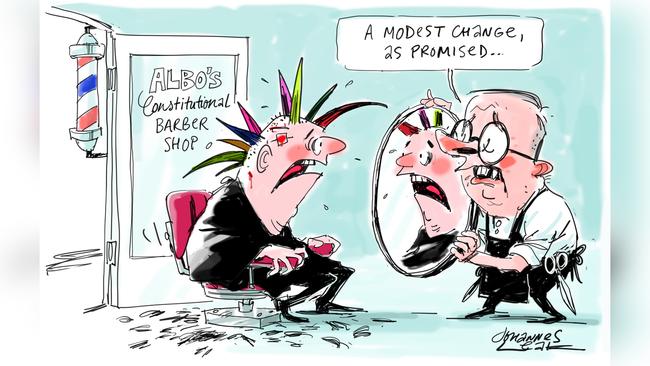
Anthony Albanese is right when he says the best programs that have worked have had a sense of ownership – bottom up, not top down. The Prime Minister is also right when he says the 10-year gap in life expectancy, a suicide rate twice as high, tragic levels of child mortality and disease, massive over-representation of Indigenous people in prisons, deaths in custody, and children sent to out-of-home care are not good enough in 2023. Support for a better way is widespread among Australians of all backgrounds, with many looking to the voice as a catalyst for effective change.
Regardless of the intense emotion of Thursday’s press conference, the model Mr Albanese put forward unfortunately raises grave concerns, including the distressing prospect that voters open to the voice might conclude they are unable in good conscience to support it. The main problem is the inclusion of the phrase “executive government”, which senior constitutional lawyers and experts who support the principle of the voice argue should be removed to limit the scope for legal challenges. In the event of the voice being established, Mr Albanese said parliament and executive government “should seek written advice from the voice early in the development of proposed laws and policies”. How that would work in relation to the use of Indigenous-controlled lands in the early confidential stages of future defence projects, for example, would need to be determined.
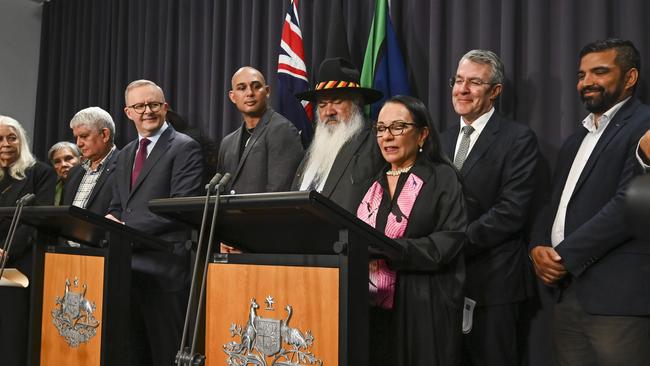
As we reported a fortnight ago, Attorney-General Mark Dreyfus proposed an alternative to the use of the words “executive government” but was rebuffed by the referendum working group. Mr Albanese should release the Solicitor-General’s advice on the issue, as Peter Dutton suggests.
Following Thursday’s press conference, constitutional law expert Greg Craven, who has always backed a voice and the referendum, warned the proposed question was “far worse than I had contemplated the worst position being” and multiplied the problems identified with the drafting. Others disagree. Constitutional lawyer George Williams says the new wording would strengthen the subordination of the voice to parliament.
What is deeply concerning, as Paige Taylor reports, is that the final wording was agreed at a meeting this week between Mr Albanese and some of the referendum working group that excluded the government’s eight-member expert panel providing constitutional advice on the voice. If ever it had a role to play it was then. Excluding the group may prove to be an unfortunate turning point.
Regardless of Mr Albanese’s choking back tears and urging Australians to grasp the historic opportunity to “ take up the generous invitation of the Uluru Statement from the Heart”, the proposal and its potential consequences must be scrutinised. The prospect of government being bogged down in legal appeals by the voice to the High Court hands the No case a potent argument. It is also likely to destroy the chance of the bipartisan support the referendum will probably need to succeed.
The upcoming referendum is about all Australians. They deserve answers to questions about the size of the body, how it will be chosen by Aboriginal and Torres Strait Islander people based on the wishes of local communities, and the breadth of the matters on which it would be consulted or provide input. The Opposition Leader is right in pushing for more details.
At its crux, the issue is what a voice, as worded, would mean for the functioning of government. What protections would exist to ensure government did not become gridlocked by indecision? What ability would the courts have to strengthen the hand of the voice against the wishes of executive government and parliament? It is possible to support an Indigenous voice but still be concerned about what it would mean for stable public administration?
Mr Albanese is passionate on the issue and no doubt is motivated by high ideals. He insists he’s not here “to change who’s in the white car” but to “change the country”. Australians, he says, “will feel better about ourselves if we get this done” and Australia will be seen as a better nation by the rest of the world. The latest revision of the wording suggests he has taken the easy path of not pushing back against the maximalist demands of the referendum working group. In doing so, he has opted for what will be a more difficult referendum question to sell. In taking the easy path now, he merely may be postponing the day of reckoning on what mainstream Australia will accept. “This is about the heart, but it’s also about the head,” he says. That is why he should be wary of dividing the nation on a race-related issue, while alienating some voters who support the basic idea of giving Indigenous people a say about the policies that affect their lives. A No vote would set the nation back, ushering in a disheartening new chapter for Indigenous people who deserve better living standards, services and opportunities and the chance to tell government what they need. Their best interests, and those of the nation, would be well served by amending the wording to optimise the referendum’s chance of success.
The Australian editorial

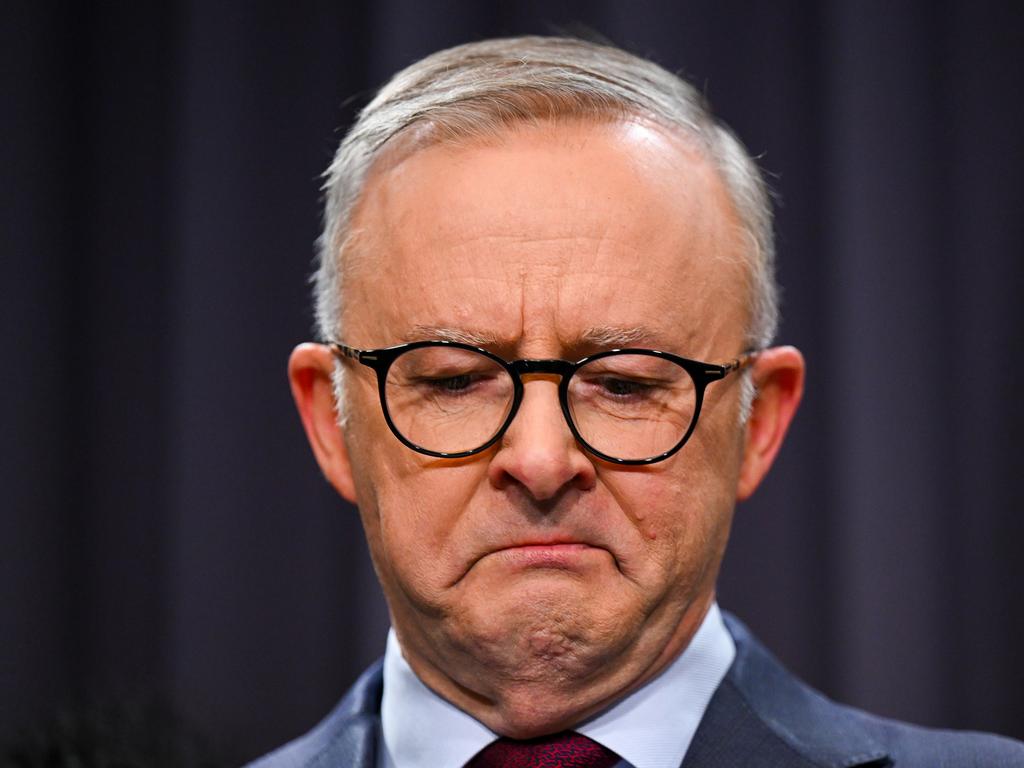
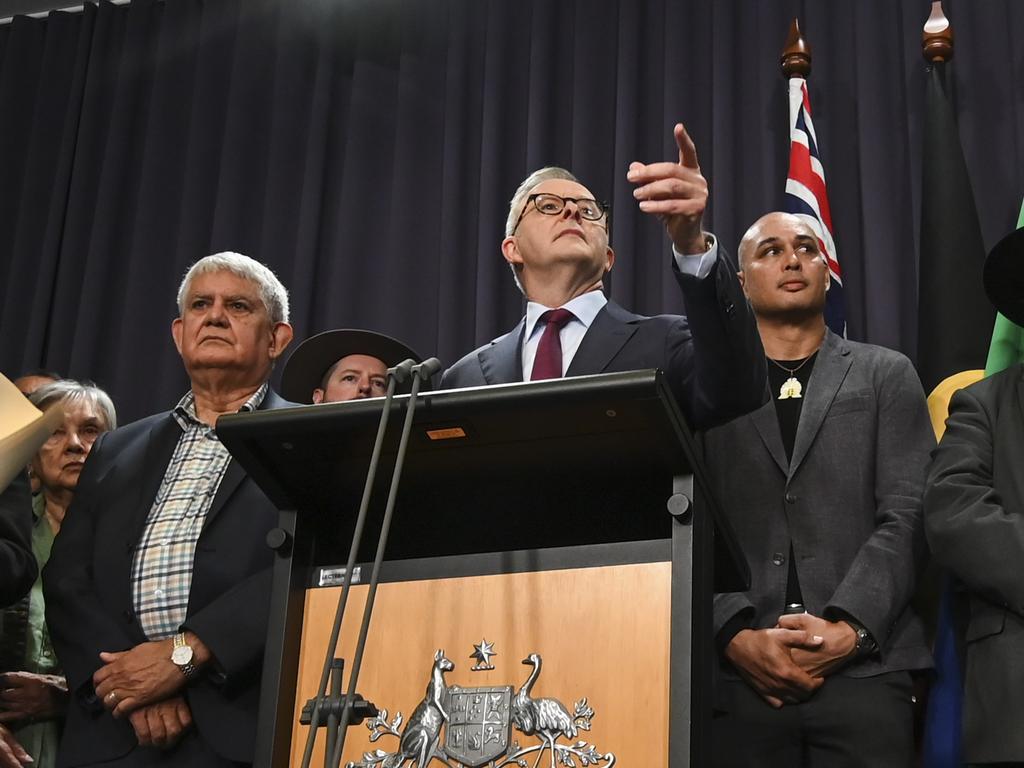
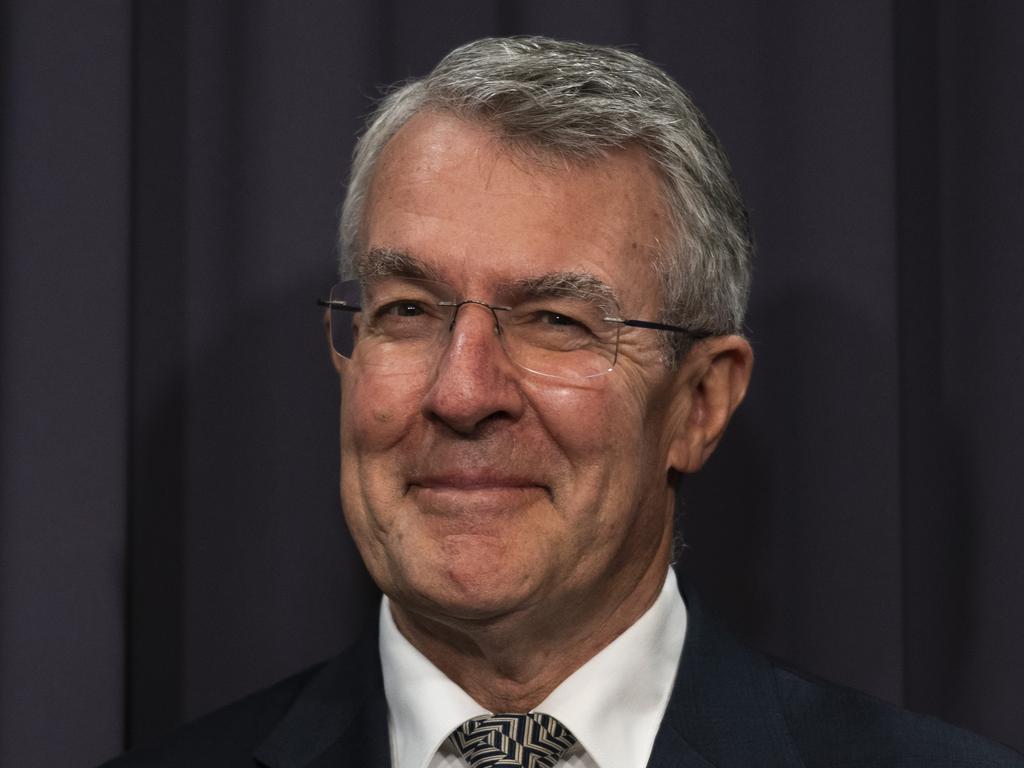
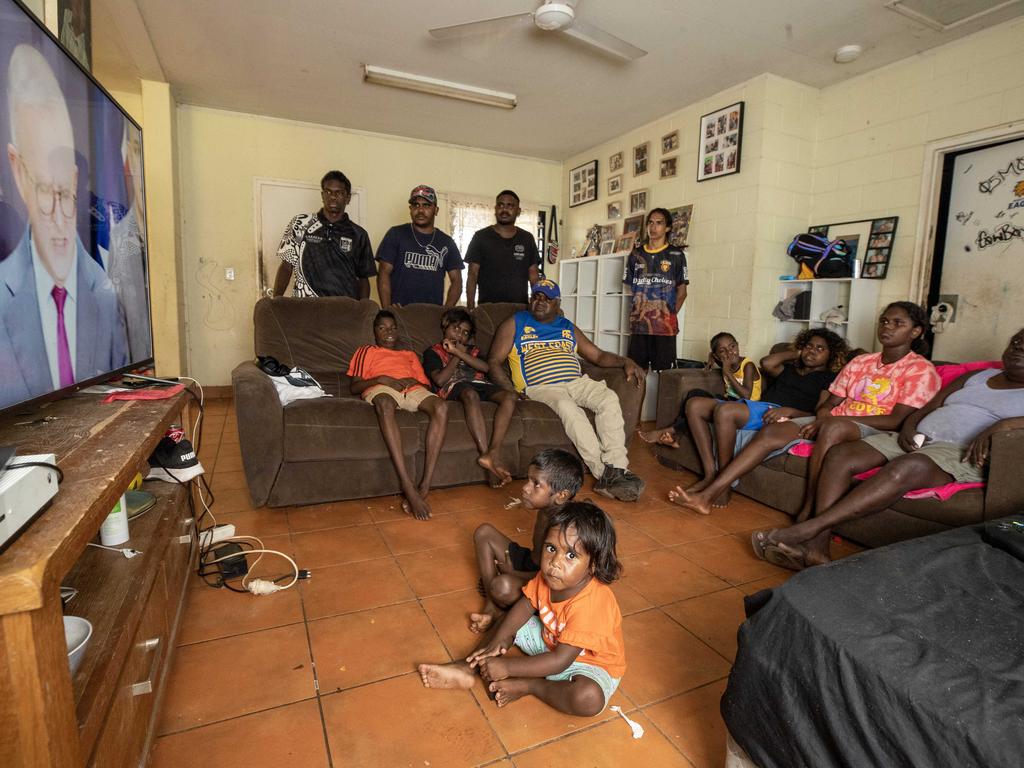

As we have for many years, The Australian supports recognition of the nation’s Indigenous people, the world’s oldest culture, in the Constitution. Based on decades of reporting from the front lines of remote Indigenous communities, we also support the principle of consultation with Aboriginal and Torres Strait Islander people about public policy matters that affect them.